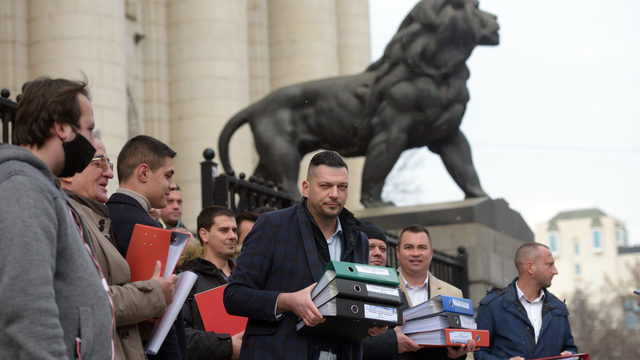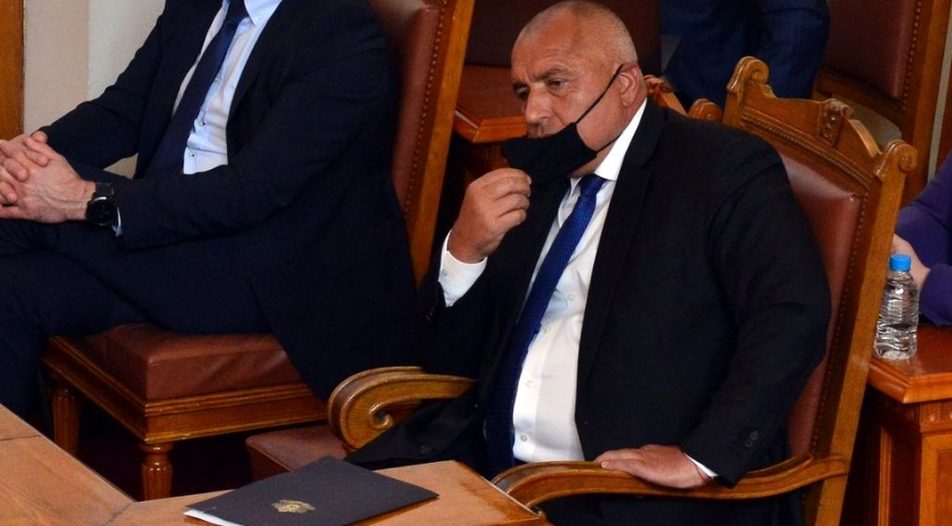"On 1 March you must open the restaurants. We are not discussing this anymore." Thus Prime Minister Boyko Borissov ordered Health Minister Kostadin Angelov to do two seemingly contradictory things: somehow quash the rising third wave of Covid-19 while letting struggling food and beverage outlets reopen in the weeks before the 4 April Parliamentary elections.
Mr Borissov's motive is easily explained: he wants to have as few malcontents as possible before the crucial vote. The hospitality and accommodation sector employs officially 183 thousand people, and unofficially - a lot more. Bearing in mind that pub owners and their employees have been practically left jobless for nearly three months, this is a reasonable concern - at least politically.
Yet opening up a month before an election, when you have a surge in cases and virtually no option of voting remotely, sounds like a dangerous bet. Why is Borissov taking it?
Pandemic before politics - or vice versa
Firstly, the hospitality sector has been hit the worst by the pandemic: other public venues have already been opened or measures are virtually non-existent. So the government has little to gain by keeping only one sector closed and - once opened - it is not easy to close down everything again.
Yet even on his own National Health Council not everyone agrees. On the same day Mr Borissov made his remarks, the National Health Inspector Angel Kunchev said that, judging by the recent rise in the numbers of new Covid-19 patients since the end of January, it was very unlikely that measures would be relaxed soon.
Even worse, recent data shows that over 70 percent of new cases are carrying the "British strain" of the virus, which is deemed more infectious. This means that failure to introduce measures, as happened in October and November 2020, might prove just as stressful to the Bulgarian healthcare system in March.
Two scenarios
This clash of political and epidemiological concerns has to be balanced. To which side will the scales tip? This depends on how the pandemic pans out. The "best case" scenario is a gradual increase in new cases until mid-March, followed by a tailing off. If this happens and the healthcare system is not overwhelmed, opening up would not turn out to be problematic.
That would potentially mean a higher turnout on polling day. In this case, GERB would likely quell cumulative grievances against the second lockdown, without having compromised the medical system. The ruling party would then likely keep its current standing in parliament and be in a position to form the next government.
This is a risky bet and "best case" is not a realistic one. If cases rise sharply after the potential reopening, a rising death toll would ensue and then the need to quickly reintroduce measures just before the elections. This, in turn, would increase public anger against GERB.
Can he still win?
Yet this scenario might also work in Borissov's favor - albeit unintentionally - in a couple of ways.
First, because a heightened epidemic would make older people, the core voters of the main opposition party - BSP, more reluctant to vote. Other smaller up-and-coming contenders like Maya Manolova's coalition and Slavi Trifonov's party would also suffer because they rely on mass protest rather than core support.
Secondly, an overall lower turnout rate would benefit GERB, which has a strong core of supporters in administration and politically connected companies, as evidenced in the last European elections.
Technical issues are no less important
Aside from trying to predict the trajectory of the pandemic and its impact on the election, Bulgarians are entitled to be concerned about how the vote will take place in a pandemic environment.
The slow progress of vaccinations and pervading scepticism about their efficacy means that it's highly unlikely that members of the polling commissions will get their jabs on time. Not only have they not yet been selected but for this mass immunization to be rendered effective, 87,000 people need to get their shots before 5 March to develop enough antibodies by election day.

Another looming problem is the lack of protocol made available to the electoral authorities by their colleagues from the medical crisis committee. Hence it is still unclear what rules members of polling and counting stations would have to follow on election day to keep themselves and voters safe.
All these uncertainties mean that Bulgaria is stumbling blindly towards one of the most important elections in its modern history. This could not only endanger people's lives before the vote and add to the burden on the healthcare system - it could compromise the results of the vote and further erode public trust in government and parliament.
"On 1 March you must open the restaurants. We are not discussing this anymore." Thus Prime Minister Boyko Borissov ordered Health Minister Kostadin Angelov to do two seemingly contradictory things: somehow quash the rising third wave of Covid-19 while letting struggling food and beverage outlets reopen in the weeks before the 4 April Parliamentary elections.
Mr Borissov's motive is easily explained: he wants to have as few malcontents as possible before the crucial vote. The hospitality and accommodation sector employs officially 183 thousand people, and unofficially - a lot more. Bearing in mind that pub owners and their employees have been practically left jobless for nearly three months, this is a reasonable concern - at least politically.












